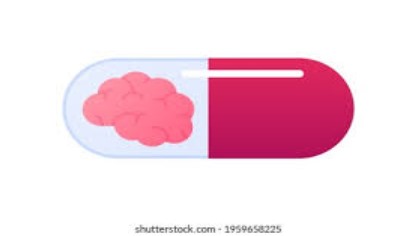Navigating the world of supplements can be a daunting task. With so many products on the market, it can be difficult to know which ones are safe and effective. This article will provide an overview of the different types of supplements available, their potential benefits and risks, and tips for choosing the right supplement for your needs. We will also discuss the importance of consulting with a healthcare professional before taking any supplement. By the end of this article, you should have a better understanding of how to safely and effectively use supplements to support your health and wellness goals.
Exploring the Different Types of Supplements: What to Look for and What to Avoid
When it comes to supplements, it is important to understand the different types available and what to look for and avoid. Supplements can be divided into two main categories: dietary supplements and performance-enhancing supplements.
Dietary supplements are designed to provide essential vitamins, minerals, and other nutrients that may be lacking in a person’s diet. These supplements can be taken in pill, powder, or liquid form and are available in a variety of flavors. When selecting a dietary supplement, it is important to look for products that are made from natural ingredients and are free of artificial colors, flavors, and preservatives. Additionally, it is important to read the label to ensure that the supplement contains the recommended daily allowance of the desired nutrients.
Performance-enhancing supplements are designed to increase energy, strength, and endurance. These supplements are often taken by athletes and bodybuilders to improve their performance. When selecting a performance-enhancing supplement, it is important to look for products that are made from natural ingredients and are free of artificial colors, flavors, and preservatives. Additionally, it is important to read the label to ensure that the supplement contains the recommended daily allowance of the desired nutrients. It is also important to avoid supplements that contain stimulants, such as caffeine, as these can have adverse effects on the body.
In conclusion, when selecting a supplement, it is important to understand the different types available and what to look for and avoid. Dietary supplements should be made from natural ingredients and free of artificial colors, flavors, and preservatives. Performance-enhancing supplements should also be made from natural ingredients and free of artificial colors, flavors, and preservatives. Additionally, it is important to read the label to ensure that the supplement contains the recommended daily allowance of the desired nutrients. Finally, it is important to avoid supplements that contain stimulants, such as caffeine, as these can have adverse effects on the body.
Understanding the Benefits and Risks of Taking Supplements: What You Need to Know
Taking supplements can be beneficial for many people, but it is important to understand the potential risks and benefits before making any decisions. This article will provide an overview of the potential benefits and risks associated with taking supplements, as well as some tips for making informed decisions.
The potential benefits of taking supplements include improved overall health, increased energy levels, and improved mental clarity. Supplements can also help to fill in nutritional gaps in the diet, providing essential vitamins and minerals that may be lacking in the diet. Additionally, some supplements may help to reduce the risk of certain diseases, such as heart disease and cancer.
However, it is important to understand that supplements are not a substitute for a healthy diet and lifestyle. Supplements should be taken in addition to a balanced diet and regular exercise. Additionally, it is important to be aware of potential side effects and interactions with other medications. Some supplements may interact with certain medications, so it is important to speak with a healthcare provider before taking any supplements.
When choosing a supplement, it is important to look for products that are made from high-quality ingredients and are manufactured in a facility that follows good manufacturing practices. Additionally, it is important to read the label carefully to ensure that the supplement contains the ingredients listed on the label and that the dosage is appropriate for the individual.
Finally, it is important to remember that supplements are not regulated by the Food and Drug Administration (FDA). This means that there is no guarantee that the supplement is safe or effective. It is important to do research and speak with a healthcare provider before taking any supplement.
In conclusion, taking supplements can be beneficial for many people, but it is important to understand the potential risks and benefits before making any decisions. It is important to look for high-quality products, read the label carefully, and speak with a healthcare provider before taking any supplement. By understanding the potential risks and benefits of taking supplements, individuals can make informed decisions about their health.
Conclusion
Navigating the world of supplements can be a daunting task, but with the right information and guidance, it can be done safely and effectively. It is important to research the ingredients in any supplement you are considering, as well as to consult with your doctor or healthcare provider to ensure that the supplement is safe and appropriate for you. With the right information and guidance, you can make informed decisions about which supplements are right for you and your health.
